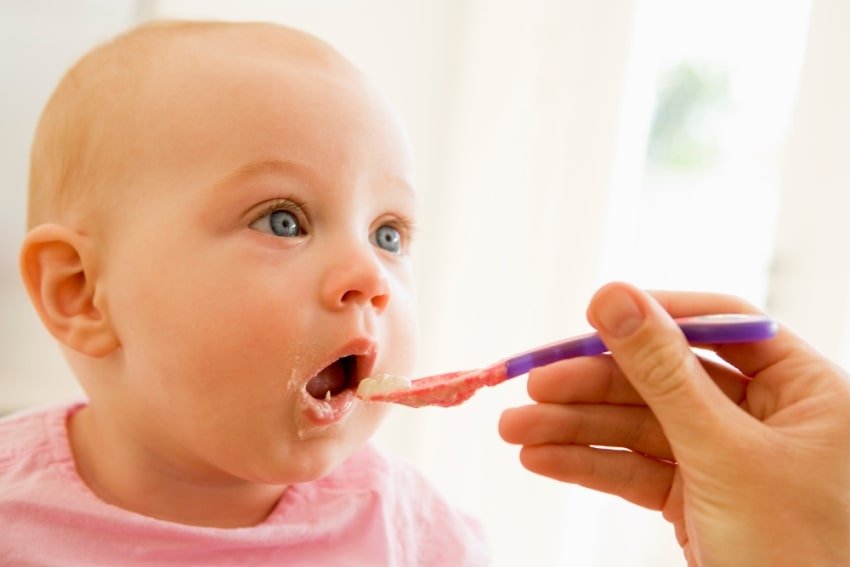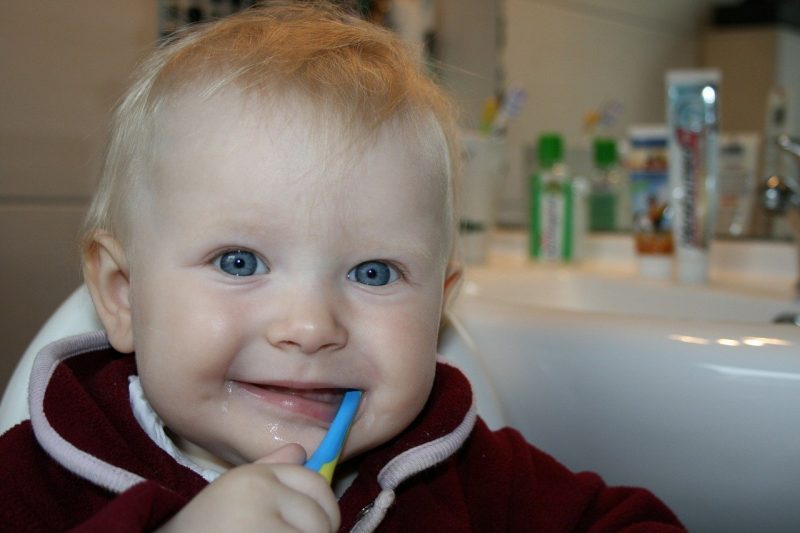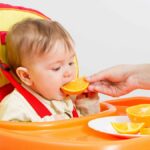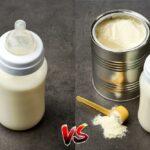They’re crying or screaming, you know it’s almost time for them to eat, but they spit the bottle back out. Or maybe you’re in the middle of feeding your baby, and suddenly they start refusing to take the bottle. It cannot be clear why they’re like this at first.
Sometimes, it can be downright frustrating. Fortunately, there are a few reasons why you’ll see your formula-fed baby suddenly refusing bottle time. You can go down this list and find one that fits.
They Need A New Nipple
Your little one might start refusing the bottle if they need to switch to a new nipple size. If the nipple you’re using is a slow flow nipple, and your baby is ready for a faster nipple, feeding can be frustrating.
They suck on the bottle but get hardly any formula, which results in them spitting the bottle back out. If this is the reason your baby won’t take a bottle anymore, they’ll act hungry.
They’ll also suck on the bottle for a minute or two before spitting it out and screaming in frustration. Pick up the next size nipple when you’re at the store. Your baby should happily start eating and quit refusing their bottle.
[amalinkspro type=”showcase” asin=”B07MBGMRJB” apilink=”https://www.amazon.com/dp/B07MBGMRJB?tag=mominformedcom-20&linkCode=osi&th=1&psc=1″ new-window=”true” addtocart=”false” nofollow=”true” sc-id=”4″ imgs=”LargeImage” link-imgs=”false” specs=”Breast-like shape encourages proper latch for natural feeding experience~~~Correctly contoured nipple shape and soft silicone give comfortable feeding experience and helps avoid nipple confusion~~~Perfect for switching from breast to bottle and back again~~~Suggested age range for the Level 2 nipple is 3 months+ but babys preferred flow rate may vary~~~Fits Dr. Browns Options+ Wide-Neck bottles~~~” btn-color=”#ff9900″ btn-text=”Buy on Amazon” alignment=”aligncenter” hide-prime=”0″ hide-image=”0″ hide-reviews=”0″ hide-price=”0″ hide-button=”0″ width=”750″]Dr. Brown’s Options+ Wide-Neck Baby Bottle Nipple, Level 2 (3 Months+), 6 Count[/amalinkspro]
They Are Not Feeling Well
When you have the flu or an upper respiratory infection, you probably don’t feel like eating a feast, if anything at all. Your baby is the same way. They might not feel like eating if they don’t feel well, which is perfectly normal.
This is one of the signs that pediatricians look for when trying to determine what’s wrong with your baby because it is so common for sick infants to stop eating as much. If your baby is sick, don’t stress. They will go back to eating like normal when they feel better.
In the meantime, try to make your baby as comfortable as possible. Give them medicine as prescribed and offer extra time holding them to help them feel better.
Even if they do not eat, offer them a bottle as much as you usually would. It’s better to allow them to eat, and they refuse it than to wait for them to start crying.
They Started To Eat Baby Food
If your little one recently got to sit in his high chair and enjoy some baby food, it makes sense that they might start to refuse their bottle. Baby food has more calories, and it tends to sit in their stomach longer. This will result in them drinking less formula.
View in gallery
It’s perfectly normal for babies to refuse a bottle if they are not hungry, and you should never try to force your little one to eat if they’re refusing their bottle. This can lead to them being over full, which an lead to stomach upset.
Instead, feed your little one a bottle before you feed them baby food. You can also cut down on how much baby food they eat. Instead of feeding them baby food until they are full, feed them a few bites of baby food and finish the meal off with a bottle.
This helps guarantee that they get all the nutrients that they need during the first year.
They Have To Poo
I noticed this one with my grandson as well as my other children. They wouldn’t or won’t eat when they have to poop. If one of them were constipated and trying to pass a bowel movement, they would refuse their bottle until they were done.
Once they had finally pooped, they would happily resume eating. If it’s been a little while since they pooped, try waiting to see if they pooped. If they did, offer them their bottle again.
Something Changed
If you recently made a change, whether intentional or unintentional, your little one might refuse a bottle. Some babies are a bit picky when it comes to their bottle, so pay attention to what might differ.
Temperature
Some babies have a temperature preference. For my grandson, it’s precisely lukewarm like his bathwater should be. My son was the same way. My daughter could have cared less.
View in gallery
You could give her a bottle straight from the fridge, and she would happily gulp it down. If the container is a little warmer or colder than usual, your little one might not like it.
Consider whether you have begun using a different bottle warmer, or whether you tested it on your wrist. If so, make them another bottle and try again.
Consistency
I discovered this one with my grandson, too. You see, he is supposed to have five ounces of water, yet three scoops of formula. This is a little bit too much formula according to the package.
However, his feeding specialist said that it’s a way to give him a formula that will not upset his stomach, yet he will still get an increased amount of calories.
If I accidentally made the bottle the way directed, which I did, he kept spitting it out. It’s because he was not used to that consistency.
After doing a bit of research to see if this was common, I discovered it was. If you are in a hurry making a bottle, it’s easy to glance at the scoop of formula and dump it in the bottle.
However, if you don’t notice that the scoop isn’t full, it leads to the bottle being watered down, and babies might refuse to drink it.
Breastfed To Bottle Fed
It’s common for a baby that is new to bottles to spit them right back out. This is because they are used to nursing, and they usually prefer nursing over bottles. If this is the case, try putting breast milk in the bottle.
You can also hold them in the exact position that you use when they are nursing to bottle feed them. Opt for a nipple designed to feel closer to breastfeeding as well.
If you can, re-create the feel of nursing while bottle-feeding to help your little one adjust.
Different Type Of Formula
There is the powdered formula, the premade formula that can be dumped right into a bottle, or those excellent ready to feed bottles, and there is concentrate formula.
If it is the same brand and the same type of formula, it should be the same thing. However, some babies are not a fan of the change, including my grandson.
Even before he adjusted to a different consistency, he refused to drink premade formula or formula made from concentrate. He will only drink bottles made from powder.
Different formulas also taste different. For example, Similac is different from Gerber. If you try to switch your little one suddenly, they might refuse their bottle.
If you recently switched and your baby is refusing their bottle, try slowly switching them to the new formula.
View in gallery
They Are Teething
This is the current feeding challenge at my house! The littlest has tiny teeth that can be seen just under his gums. He is sporadically fussy, and sometimes his feeding is just not happening.
After some research, I discovered that it’s also pretty common for babies to refuse to take their bottles while they are teething. This is because they are already uncomfortable and in pain. Then, the sucking motion of eating makes the pain and discomfort worse.
If your baby has gums that are slightly white and shows other teething symptoms, this could be the culprit. Pick up some baby Orajel or teething toys to help your little one feel more comfortable.
[amalinkspro type=”showcase” asin=”B07DKMCDY5″ apilink=”https://www.amazon.com/dp/B07DKMCDY5?tag=mominformedcom-20&linkCode=osi&th=1&psc=1″ new-window=”true” addtocart=”false” nofollow=”true” sc-id=”4″ imgs=”LargeImage” link-imgs=”false” specs=”Benzocaine Free~~~Instant Cooling Sensation~~~For Babies 3+ Months~~~Apply to the affected area up to 4 times daily or as directed by a physician or healthcare provider~~~Sugar Free, Gluten Free, Dairy Free, and Free of Artifical Flavors~~~” btn-color=”#ff9900″ btn-text=”Buy on Amazon” alignment=”alignnone” hide-prime=”0″ hide-image=”0″ hide-reviews=”0″ hide-price=”0″ hide-button=”0″ width=”750″]Baby Orajel, Non-medicated Cooling Gels for Teething, 2 Tubes[/amalinkspro]
You can also try feeding them while they are sitting up. It seems to be more uncomfortable for babies that are teething to eat while lying down.
It’s A Phase
It’s extremely common for babies to go through phases. One of those phases is that they might eat a little bit less. Instead of five ounces, maybe they’ll drink four. They might also refuse to eat a bottle here and there altogether.
Sometimes, there is no underlying reason. It’s simply a phase. There’s nothing you can do but wait it out. Continue offering a bottle just in case, though.
Babies will also go through phases of eating more. During these periods, it will seem like you can’t feed them enough. All of the children in my household do this when they are growing.
My 14-year-old son is like a human garbage disposal. My adorable six-year-old needs fed approximately every two hours. A few months from now, they’ll be done growing and slow down.
My infant grandson has a similar pattern. He’ll eat a lot and then suddenly it’ll take him much longer to finish. Then, he resumes his normal schedule.
They’re Changing Their Feeding Schedule
If you have a formula-fed baby suddenly refusing their bottle, it could be because they are changing their feeding schedules. As babies get older, it’s common for them to start drinking more per feeding.
This results in them eating fewer bottles per day even though they are drinking more formula per day. Most babies will do this on their own as they get older, and their stomachs get bigger.
To determine if this is why your baby won’t take a bottle anymore, write down how much they eat and when. This will help you determine if your baby is getting the right amount to eat, and it can give you an idea as to what is going on.
While this doesn’t apply for every baby, my little ones did this when they started sleeping through the night on their own. It could be because they ate more after waking up from not eating all night, and that just so happened to change their feeding schedule, though.
They’re Tired
Sucking down a six-ounce bottle can be a lot of work for an infant! If they are already tired and ready for a nap, the way that a bottle soothes them to sleep might be too much for them. After they get so tired, they simply don’t have the energy to eat.
View in gallery
If you notice that your baby is falling asleep or has a weak suck and looks tired, it is more than likely to refuse their bottle. Some babies will continue to eat while they are asleep; they will just eat slower. If you notice this, keep feeding your baby.
If they are no longer sucking on the bottle, don’t try and force-feed your little one or figure out ways to keep them awake. Instead, let them lay down and take a nap.
If they go to sleep without a fuss, they were just worn out. After they wake up, they’ll probably be ready to eat again.
When To Call The Doctor
As soon as you see your formula-fed baby suddenly refusing bottle feeding, it can be alarming. After a couple of feedings, you start to wonder if they are getting enough to eat. Babies are so small and fragile that the slightest thing can send up red flags.
Before rushing to call the pediatrician after the first refusal, take a deep breath. It’s common for babies to do this. Go through the list above to see if you can figure out why your baby is refusing their bottle. Then, wait a few days. It could be a phase.
If your little one is experiencing symptoms aside from refusing to eat, such as vomiting, excessive diarrhea, trouble breathing, or a fever, you should contact your doctor immediately. These are all signs your little one is sick.
If there are no other symptoms, you should call your doctor after two to three days. Your pediatrician will schedule an appointment with you to determine why your little one doesn’t want their bottle anymore.
They will ask you questions regarding changes in formula, nipple, bottle, etc. Even if it is a small reason that is not a medical emergency, it’s okay. Most pediatricians are full of useful parenting tips.






